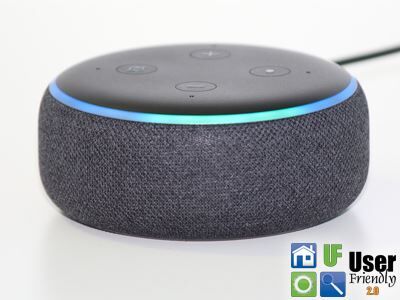By User Friendly 2.0
By: William Sikkens
Host, User Friendly 2.0 Saturday’s at 5:00 p.m.
Smart Speakers
This week’s Tech Wednesday is from several listener questions regarding smart speakers. When smart speakers first came onto the market there were only a few options available, and it was easy to choose what you preferred. Today there are many choices available at many different price points.
Q: What is a smart speaker?
The term “smart speaker” refers to a device that allows you to talk to an AI. Some examples of smart speakers are the Amazon Echo (Alexa), Google Nest (Ask Google), and HomePod (Siri). With this type of technology you can look up information with your voice as well as control your home and even watch movies and place video calls (depending on the model).
Q: Are smart speakers the only way I can talk to my AI?
In short, no. Today the ability to talk to your preferred AI includes a number of devices beyond smart speakers such as phones, headsets, televisions, sound bars and even devices like your range and refrigerator.
Q: What is the difference between a smart speaker that’s just a speaker and one that has a screen?
A smart speaker with a screen can do all the same functions as one without but has video options. This can include video calls, visual display of information that you look up, the ability to do things like view security cameras and more. These devices include the Echo Show and the Google Nest Smart Display. There are a number of different options available on screen size and capability.
Q: What is available for the different prices?
The price is usually based on two factors. First is the capability. Things like screen size and audio quality are just a few of the options that will determine cost. The high end Echo Show, as an example, has a motorized base that will follow you as you move around the room.
The second thing that determines the price is the age of the unit. This doesn’t mean getting a used one but is the time since it was released. To use Amazon as an example again they have different “generations” of the Echo and Echo Show. The older ones tend to cost less with the newer models having the state of the art features.
Q: Are Smart Speakers always listening to you?
The way that this type of technology actually works is that usually a recording of your voice is sent via the Internet where the AI is able to process what you said. The AI’s response is then returned via the Internet to your speaker where it is spoken. This means that in order for the speaker to work it has to be always on. It “listens” for a wake word (“Alexa” or “Hey Google”) and then starts recording. There have been problems where the recording is active at other times and this has created controversy. The device is supposed to flash a light when it’s listening. Also most video devices have a way to physically block the camera with a slider. There is generally (depending on the model) a way to block the microphone as well.
William (Bill) Sikkens has been an on-air technology expert since 2014. With an expertise in I.T., cyber security and software design he has had more than 20 years’ experience with advanced technology. Sikkens conceptualizes and designs custom applications for many professional industries from health care to banking and has the ability to explain the details in a way all can understand. Article edited by Gretchen Winkler, who along with Jeremy Winkler are the co-hosts of User Friendly 2.0 here on The Answer Saturday’s at 5:00 p.m.
Links and brand/store information provided are for information only and are not endorsed by Salem Media Group, KPAM or the show’s hosts.
Got a technology question or comment for Bill? Follow him on Twitter @sikkensw


